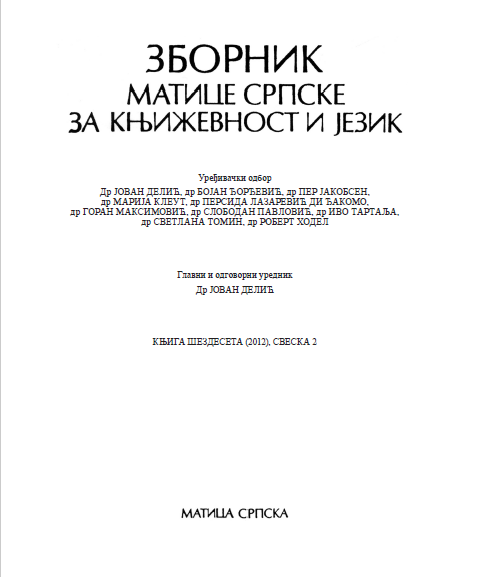ПРОСТОР И ПРИЧА У ВЕНЕЦИЈИ ВЛАДИМИРА ПИШТАЛА
SPACE AND THE STORY IN VLADIMIR PIŠTALO’S NOVEL VENICE
Author(s): Aleksandra V. JovanovićSubject(s): Serbian Literature, Theory of Literature
Published by: Матица српска
Keywords: Vladimir Pištalo; Venice; Space and the story;
Summary/Abstract: Many literary and social theories have seen human brain as a palimpsest. In the writings of Thomas de Quincey and Sigmund Freud human brain is viewd as a palimpsest in which experience could be written, erased and written over indefinitely. On the other hand Jacques Derrida sees text as a palimpsest in which all previous texts that have contributed to its making are inscribed in the shape of invisible, that is, unconscious traces. How the content of the inner human spaces is being projected on the outer or geographical space is described in Gaston Bachelard’s study The Poetics of Space. The aim of this essay is to describe the fictitious space of the novel Venice by Vladimir Pistalo, tracing the story, as its narrator does, along the elusive track between the private and public, or conscious and unconscious space of the city as a huge palimpsest.
Journal: Зборник Матице српске за књижевност и језик
- Issue Year: 60/2012
- Issue No: 2
- Page Range: 549-554
- Page Count: 6
- Language: Serbian

